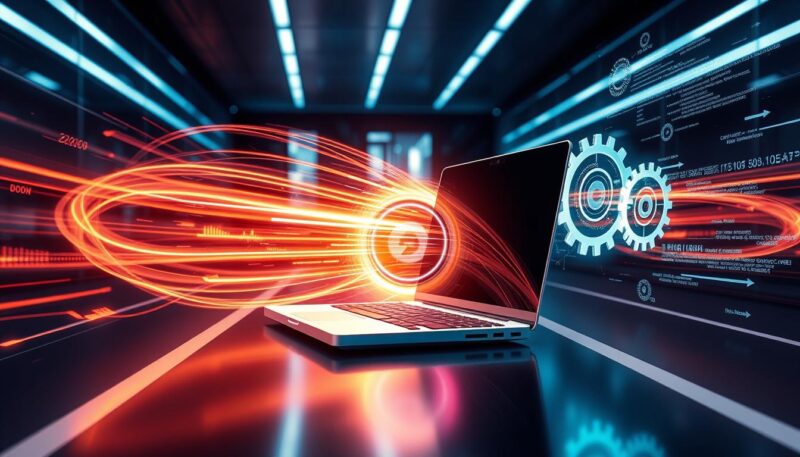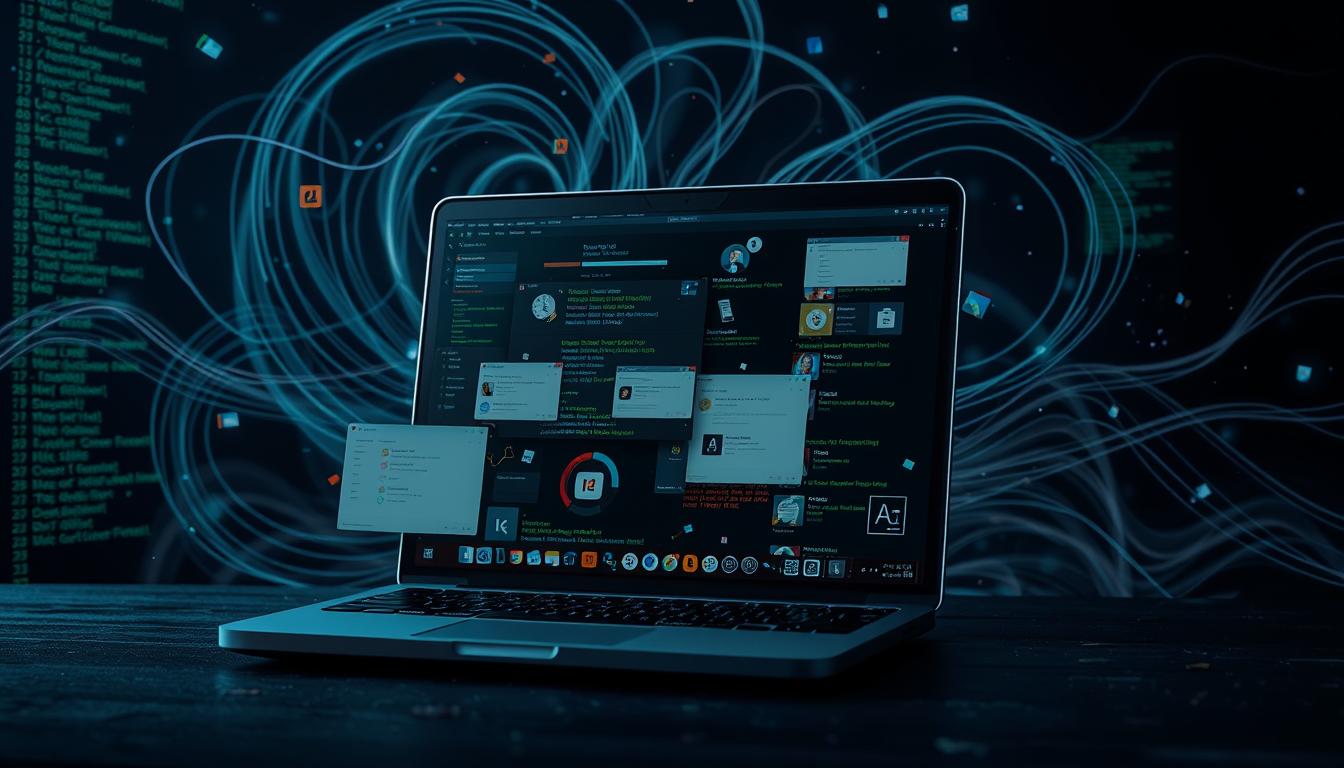If you’ve ever found yourself staring at a loading screen or waiting for an application to open, you might be wondering, “Why is my laptop so slow?” It’s a common frustration among users, and often, the reason behind a laptop running slow can be traced back to background processes. These are applications that run silently in the background, performing necessary tasks like updates or syncing data. However, while some processes are essential, others can act as significant roadblocks, hogging CPU and memory resources that should be allocated to the tasks you’re actively engaged in.
Understanding background processes and their impact on your laptop’s performance is vital for troubleshooting slow laptop causes. For instance, antivirus scans can be a major culprit, as they often consume considerable system resources while scanning for malware. Additionally, too many applications launched at startup can bog down your system from the moment you log in, affecting overall responsiveness. Moreover, web browsers can rapidly become resource-intensive when multiple tabs or windows are open—something many of us are guilty of. With outdated operating systems or drivers exacerbating these issues, it becomes clear why identifying and managing these processes is crucial for maintaining optimal laptop performance.
By delving into the core components of your laptop’s operation and identifying those background processes that may be slowing your device down, you can take meaningful steps to enhance its performance. This inquiry is not merely academic; it’s about taking actionable measures that can significantly speed up your system and improve your overall computing experience.
Understanding the Slow Laptop Causes
Many factors can contribute to a slow laptop, with background processes often playing a pivotal role. These processes run behind the scenes, consuming valuable system resources and potentially impeding performance. Identifying these background processes is essential when fixing slow laptops.
The Role of Background Processes
Background processes can significantly impact your laptop’s efficiency. When too many applications are running simultaneously, they increase the CPU load, leading to slower performance. Effective laptop troubleshooting involves recognizing which processes unnecessarily consume processing power. Often, excessive background activity can create delays in responsiveness for active applications.
Common Background Processes
- Antivirus scans
- Software updates
- Resource-intensive applications
- Cloud storage syncing
Each of these processes can have a considerable background app impact, draining resources that active programs need to function smoothly. Regularly monitoring these tasks and disabling those that are not needed can aid in optimizing background processes for better overall performance.
Impact on RAM and Disk Activity
The management of background processes also reflects on RAM and disk usage. When too many processes vie for memory, a condition known as memory swapping may arise. This situation forces your laptop to utilize the hard drive as virtual memory, which can significantly slow things down. Continuous background activities can lead to frequent disk read and write operations, further hampering speed. To enhance performance, ensure you manage these processes effectively and consider upgrading RAM if necessary.
Why Is My Laptop So Slow? Identifying Key Factors
Understanding the key factors contributing to your laptop’s slowness can be vital in achieving efficient performance. Several elements can hinder speed, notably resource-heavy applications, startup programs, and outdated software. Addressing these areas can lead to effective slow laptop solutions that enhance your productivity.
Resource-Heavy Applications
Running resource-heavy applications can significantly tax your laptop’s capabilities. Programs like video editing software, gaming platforms, and web browsers with multiple tabs open monopolize your CPU and RAM. If you frequently utilize such applications, they may lead to considerable slowdowns. Managing these applications is essential when considering how to fix slow laptop issues.
Startup Programs and Their Effects
The number of startup programs plays a critical role in your laptop’s boot time and responsiveness. Applications that launch automatically during startup can burden your system, leading to delays in reaching a usable state. Reducing the number of these programs boosts performance, improving overall speed. You can easily manage startup items through the Task Manager, ensuring that only necessary applications load at startup.
Role of Outdated Software
Outdated software and drivers often introduce performance inefficiencies. Compatibility issues stemming from failure to update can degrade your laptop’s speed and responsiveness. Regularly checking for updates through Windows Update or manufacturer websites is crucial. This maintenance not only addresses the role of outdated software but also ensures that your laptop remains optimized for performance, facilitating the process of speeding up laptops.

Conclusion
Understanding the various reasons behind laptop performance issues is crucial for maintaining a responsive device. Background processes can often be the hidden culprits, making it important to identify and manage them effectively. By recognizing factors such as resource-heavy applications, problematic startup programs, and outdated software, you can take proactive measures to mitigate slowness.
Routine maintenance, including monitoring your storage space and performing timely updates, contributes significantly to solving slow device problems. Ideally, keeping 15-20% of your hard drive free enhances overall performance and system stability. Moreover, consider upgrading your hardware, particularly RAM and transitioning to SSDs, to further boost laptop speed.
Utilizing tools like Task Manager to terminate unnecessary processes and being mindful of how many applications you run simultaneously are practical laptop speed tips to keep your device running smoothly. By implementing these strategies, you can minimize the risk of sluggishness and ensure an efficient and enjoyable computing experience.
As a seasoned tech enthusiast and content creator, I bring a wealth of knowledge and passion for cutting-edge Samsung TV technology to the forefront. With a background in digital marketing and a keen eye for innovation, I strive to deliver insightful and engaging content that keeps readers informed and inspired. Join me on a journey through the latest advancements in Samsung TV technology, where we explore the intersection of entertainment, innovation, and connectivity.

